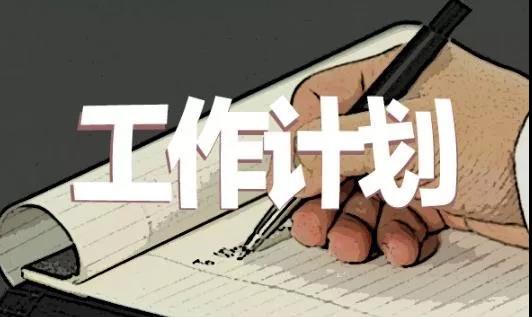英语时态与语态第1篇语法单句填空引入范例:动词ing(现在分词)*MorehighwayshavebeenbuiltinChina,____(make)itmucheasierforpeopletot下面是小编为大家整理的英语时态与语态13篇,供大家参考。

英语时态与语态 第1篇
语法单句填空
引入范例:
动词 ing(现在分词)
*More highways have been built in China,____ (make) it much easier for people to travel from one place to
答案 making
动词 ed分词(过去分词)
*Recently the father has found his son increasingly ___ attracted ___ to the Internet
句意:最近那位父亲发现他的儿子越来越沉溺于网络游戏。宾语his son与attract为逻
辑上的被动关系。
动词 to do(不定式)
Group activities will be organized after class (help) children develop team (20XX重庆,11)
答案 to help
解析 考查非谓语动词。句意为:将在课后组织各种团体活动以帮助儿童培养团队精神。培养团队精神是组织课外团体活动的目的。英语中表示目的时应当使用动词不定式。
其他情况
The airport (complete) next year will help promote tourism in this (20XX四川,10)
答案 to be completed
(spend) the past year as an exchange student in Hong Kong,Linda appears more mature than those of her (20XX福建,27)
答案 Having spent
解析 考查非谓语动词。花费和其逻辑主语Linda之间是主动关系,故用现在分词;且动作发生在谓语动作之前,用现在分词的完成式
, used (use) correctly, is money in the (20XX湖南)
spent (spend) the past year as an exchange student in Hong Kong, Linda appears more mature than those of her (14福建)
been shown (show) around the Water Cube, we were then taken to see the Birds Nest for the 20XX Olympic (08陕西)
(stand) in a long queue, we waited for the store to open to buy a New (20XX陕西)
Tired (tire) and short of breath, Andy and Ruby were the first to reach the top of Mount (09浙江)
next thing he saw was smoke rising (rise) from behind the (20XX全国I)
George returned after the war, only to be told (tell) that his wife had left (20XX山东)
lecture having been given (give), a lively question-and-answer session (20XX江苏)
free (free) ourselves from the physical and mental tensions, we each need deep thought and inner (20XX湖南)
(absorb) in the book she was reading, Mary didnt notice me
, whenaccompanied (accompany)by their parents, are allowed to enter the (20XX湖南)
surprised (surprise)to see us,the professor gave us a warm (20XX全国Ⅱ卷)
lacking (lack)money, his parents managed to send him to
crossing (cross) the street, you cant be too
completed ( complete), the museum will be open to the public next
The witnesses questioned (question) by the police just now gave very different deions of the (20XX陕西)
first book to be published (publish) next month is based on a true (20XX陕西)
gives you a chance to change (change)lives, including your (20XX北京)
of daily goods bought (buy) through a computer can be lower than prices in (20XX全国春)
is a note pinned to the door saying (say)when the shop will open (20XX山东)
the governments aid, those affected (affect) by the earthquake have moved to the new (20XX上海)
and gentlemen, please remain seated (seat) until the plane has come to a complete (20XX四川)
Brown was much disappointed to see the washing machine she had hadrepaired (repair) went wrong (1999上海)
was explaining to us and he was trying to make himself understood(understand).
many brightly colored flowersplanted (plant) around the building, his house looks like a beautiful
(lose) in the mountains for a week, the two students were finally saved by the local (05江苏)
the old saying goes, friendship is like money easier made than kept (keep).
she was on his way back home, she had her wallet stolen (steal)
(catch) in the heavy rain, he was all
(give) more time, we could do it much
(dress)in a white uniform, he looks more like a cook than a
(lose) in thought, he almost ran into the car in front of
(drive)by a greater demand of vegetables, farmers have built more green
(see) from the top of hill, the town looks more
they got there, the girl was found beaten ( beat) black and
club, founded (found) 25 years ago, is holding a party for past and present
like getting up very early in The morning air is so good to breathe(breathe).
am not accustomed tobeing treated ( treat) like
The living room is clean and tidy, with a dining table already laid (lay) for a meal to be cooked
Film has a much shorter history, especially when compared ( compare) to such art forms as music and
语法单句改错
is difficult to understanding why she barks every minute shes (20XX年辽understand
wantedteach me about animals, insects and (20XX 陕西)toteach
used to holding me on her knees and sing old (20XX新课标全国)
hold
She never seemedcare what the rest of us thought about to care
was a lesson to us that it was possible give without expecting anything in
give
very much famous writer agreed to reading my story and give me some
read
evening at sunset, we sat by the fire, had our (20XX 陕西)having
hungry, we built a fire by the lake and barbecued the (20XX陕西)
Feeling
this explanation, there was a rapid drop in the number of reported (20XX辽宁)Following
, we should find ways to reuse the water using in (20XX大纲全国II)used
also shared with my friends many photos taking in (20XX陕西)taken
assistant was clearly as embarrassing as my embarrassed
pleasing to hear it, said his boss, but where were you yesterday?pleased
think for some time, I let her copy my (20XX年四川)thinking
isnt good at talk but he gets on well with other (20XX新课标)
talking
tea in the late afternoon provides a bridge between lunch and dinner, that might not be served until 8 oclock at (20XX年新课标Ⅱ)Having
you so much for not only giving me life, but also teach me how to be a good (20XX四川) teaching
soon got used to live without my parents (20XX重庆)living
foreigner tried his best to make his pointbe 划去be
found a piece of rope with one end tying in a
Mark got his hands to burnt in the 划去to
What kept you so exciting? excited
should speak loudly enough to make yourself heard
noticed the traffic holding up after a bad held
denied there be any misunderstanding between
There were so many people in the street watch the fire that firefighters couldnt get close to the building .watching
, we are going to visit you permitting
英语时态与语态 第2篇
1、will/shall do
(1)表示将来会出现的动作或状态。常用的时间状语:this evening, tomorrow, next week/month…,at the end of this term, in a few minutes等。
(2)表示将来经常发生的动作。
(3)表示事物的固有属性或必然趋势、倾向。
(4)表示说话过程中做出某种决定。
注意:条件状语从句中的will表示“决心,意愿”,此时will是情态动词表示意愿。
2、be going to do
(1)表示已经决定或安排要做的事。
(2)表示根据某种迹象认为在最近或将来将要发生的事。
3、be to do
(1)表示约定、计划或按职责、义务要求即将发生的动作。
(2)表示说话人的意志、意图、职责、义务、命令。
(3)表示注定要发生的事情。
4、be about to do
(1)表示即将发生的动作,意为“正要,即将”。
(2)不可与表示具体的将来时间的副词或副词性短语连用,但可以同由as或when引导的时间状语从句连用。
5、某些动词的现在进行时表示即将发生的动作。
英语时态与语态 第3篇
1、某些动词形式上主动,但含有被动意思,往往表示主语本身的性质,而且主语应该是事物。
2、在“have+宾语+to do”结构中,当不定式的逻辑主语在句中出现时,不定式用主动语态,否则用被动语态。
3、在“be+形容词+to do”中,不定式的逻辑宾语是句子的主语,用主动表被动。
4、在某些词组中,用动词的主动形式表被动。
(1)be worth doing
(2)want, require, need后面的动名词用主动形式表示被动含义。
(3)with复合结构
英语时态与语态 第4篇
1、表示说话时正在进行而尚未完成的动作或状态。
2、表示现阶段一直在进行的动作,但说话时不一定正在进行。
3、有时可表示即将发生的动作(只限于go, come, stay, leave, start, begin, arrive, return, fly, drive等动词),这时常有一个表示将来时间的状语。
4、常与always, forever, constantly, continually, all the time等时间副词连用,表示反复发生的或习惯性的动作,常表示不满、抱怨或赞赏等情感。
5、有些表示感觉、情感的动词不能用进行时,它们是:know, understand, love, like, hate, feel, desire, wish, want, refuse, remember, hear, see, have等, 这些动词一般不用进行时,通常用一般现在时态,表示说话时发生的动作。
英语时态与语态 第5篇
1、表示经常发生的习惯性的、现在反复出现的动作或状态,常用的时间状语有:always,usually,seldom, sometimes, every day, now and then, once a week等。
2、表示眼下或目前等现在时间所发生的动作或存在的状态,这种状态带有一定的持续性。
3、表示客观事实或普遍真理。
4、书报的标题,故事的叙述,小说、戏剧、电影等情节介绍,图片的说明等。
5、时间表、时刻表、日程表、节目单、课程表等按规定将要发生的动作,只限于go, arrive, leave, start, stay, return, begin, come等动词。
6、在时间、条件、方式、让步状语从句中,表示将来的动作。
注意:一般现在时可以用于定语从句或宾语从句中表示将来。
7、用在某些表达中,表示现在正在发生的动作或存在的状态。
Here comes the bus!How it rains!
英语时态与语态 第6篇
1、表示在过去某一时刻或动作以前已经完成了的动作,即“过去的过去”。
----|-----------|----------|-------->
过去 完成过去 现在
注意:在含有时间状语从句的复合句中,若两个动作紧接着发生,则不需用过去完成时,尤其是在含有before和after的复合句中,常用一般过去时代替过去完成时。
2、表示未曾实现的希望、打算、意图、诺言等。常用had hoped/ planned/ meant/ intended/ thought/ wanted/ expected等或用上述动词过去式接不定式表示即:hoped/ planned…+to do。
3、过去完成时用于hardly…when, no sooner…than等固定句型中。
英语时态与语态 第7篇
主动do/doesdidwill/shall dowould/should doam/is/are doing
被动am/is/are donewas/were donewill/shall be donewould/should be doneam/is/are being done
过去进行时将来进行时现在完成时现在完成进行时过去完成时
主动was/were doingwill/shall be doinghave/has donehave/has been doinghad done
被动was/were being done----------have/has been done----------had been done
英语时态与语态 第8篇
词序就是词或句子成分在句子中的排列顺序。英语里的词和句子成分在句子里的位置比较固定。现将句子成分和虚词在陈述句中的一般位置举例说明如下:
1)主语的位置 在陈述句基本结构的最前面。如:
We help each 我们互相帮助。
2)谓语动词的位置 在主语之后。如:
We go to school every 我们每天上学。
3)表语的位置 在连系动词之后。如:
It"s fine 今天天气很好。
4)宾语的位置 在及物动词或介词之后。如:
I like this 我喜欢这个地方。(及物动词的宾语的位置)
There are many trees in this 这地方有许多树。(介词的宾语的位置)
5)定语的位置 单词作定语,一般放在被修饰语的前面,短语和从句作定语则放在被修饰语的后面。如:
The school library has many books on 校图书馆有许多关于农业的书。(many和on agriculture,都修饰books,many在books的前面,on agriculture则在它的后面)
6)状语的位置 修饰形容词或副词的状语放在被修饰语之前;修饰动词的状语有的放在动词之前,有的放在动词之后。如动词有宾语,状语一般须放在宾语之后。如:
The Summer Palace is very 颐和园非常美丽。(very为状语,修饰形容词beautiful,放在beautiful之前)
I know him 我十分了解他。(well为状语,修饰动词
know,放在know之后)
The students often go on a 这些学生经常出去野餐。
(often为状语,修饰动词go,放在它的前面)
We take exercise every 我们每天都运动。(every day为状语,修饰动词take,在宾语exercise之后)
[注]关于以上所讲各个句子成分在句子里的位置,详见第十六章各有
关部分。
7)冠词的位置 冠词在名词之前。如:
I met a friend at the 我在公共汽车站遇到一位朋友。
8)介词的位置 介词一般也放在名词或代词之前。如:
There is a map of China on the 墙上有一幅中国地图。
9)连词的位置 连词一般放在同类的词、短语或从句之间。如:
They worked quickly and 他们工作速度快,效率高。
He works just as hard as everyone else although he is over 他尽管六十多岁了,仍和大家一样努力工作。
10)感叹词的位置 感叹词常放在句子最前面。如:
Oh,it"s you!啊,是你呀!
[英语语法手册]关于英语名词
定义
什么是名词 表示人、事物、地点或抽象概念的名称的词,叫做名词。如:
baby 婴儿 time 时间
pencil 铅笔 socialism 社会主义
air 空气 Shanghai 上海
种类
名词的种类
英语名词可分为两大类:
1)普通名词(common noun)普通名词是某一类人、某一类事物、某种物质或抽象概念的名称。如:
soldier 士兵 water 水
pupil 学生 health 健康
machine 机器 pleasure 快乐
2)专有名词(proper noun)专有名词是个别的人、团体、地方、机构或事物的名称。其中实词的第一个字母必须大写。如:
Lei Feng 雷锋 Karl Marx 卡尔·马克思
London 伦敦 China 中国
The Communist Party of China中国共产党
The Great Hall of the People人民大会堂
The Ministry of Foreign Affairs外交部
普通名词的种类
普通名词可进一步分为:
1)类名词(class noun)类名词表示人或事物属于某一类。如:
tractor 拖拉机 panda 熊猫
factory 工厂 teacher 教员
2)集体名词(collective noun)集体名词是一些人或物的总称。如:
class 阶级,班 herd 兽群
crowd 人群 army 军队
3)物质名词(material noun)物质名词表示物质或不具备确定形状和大小的个体的实物。如:
steel 钢 gram 粮食
fire 火 cotton 棉花
4)抽象名词(abstract noun)抽象名词表示动作、状态、品质或其他抽象概念。如:
happiness 幸福 life 生活
work 工作 whiteness 白色
[注]名词又可分为可数名词(countable noun)与不可数名词(uncountable noun)。可数名词有单、复数之分,不可数名词一般不分单数和复数。类名词和集体名词一般是可数的;抽象名词、物质名词和专有名词一般是不可数的。有少数名词既可用作不可数名词,又可用作可数名词,但意义有所不同。如:
用作不可数名词 用作可数名词
glass 玻璃 玻璃杯
paper 纸 报纸,文件
tin 锡 罐头
copper 铜 铜币
英语时态与语态 第9篇
1、there be 结构及所有的不及物动词或词组充当谓语时,无被动语态。
2、系动词无被动语态。
3、一些表示状态的及物动词,如cost, have, own, possess等不能用被动语态。
4、表示“希望、意图”的动词,如wish, want, hope, like, love,hate等不能变被动语态。
5、当及物动词leave, enter, reach等的宾语是表示地点和处所(包括组织、团体、军队、国家等)的名词时,不可变为被动语态。
英语时态与语态 第10篇
一、汉语中的“时态语态”
学英语之所以学习语法是因为语法是语言表达的方法,中西文化差巨大,在语言上也能很明显看出这一点,汉语的动作发生的时间在动词上体现不明显,通常加上时间状语才能更清楚地体现该动作出现的具体时间。而英语不同的是,这种语言的时态和语态完全体现在谓语动词上,而且时间分的比较精细。不仅涉及到“时”还搭配“体”。汉语在这方面的表达上就不会如此复杂。因此,这种差异出现在不同的语言文化中确实难倒了不少中国学生。
二、常见题型
时态语态常出现在的题型有:(1)单项选择(如,北京卷、天津卷、江苏卷等);(2)语法填空(如,全国一卷、全国二卷、全国三卷等)。
三、揭秘解题小技巧
(1)判断语态
相对于时态而言,语态更好判断一些。英语中的语态共两种:主动语态和被动语态。多数题型是四个选项中主动语态和被动语态各占一半,如果首先判断出语态,排除了主动语态的选项或含有被动语态的选项,那么该题目的正确率可以达到50%。另外,通过语义表达,学生是不难判断出该句子的主语发出的动作表达的是主动含义还是被动含义。
(2)看时间状语或标志词
不同的时态对应的时间状语是不同的。例如:
1、一般现在时的时间状语有:表频率的时间状语(频度副词或介词短语);
2、一般过去时的时间状语有:last week; a moment ago; in 1980; yesterday等等表过去的某时间;
3、一般将来时的时间状语有:tomorrow, next year,next week, two days later等等表将来的时间;
4、现在完成时的时间状语有:so far, up to now,for+时间段, since+时间点,over/in the past/last few years/months…等等;
5、过去完成时的时间状语有:before+过去的时间, by+过去的时间等;
6、现在进行时的时间状语有:now, at the moment等;
7、过去进行时的时间状语有:at this time yesterday, at 8:00 this morning等过去某一时间点。
8、将来完成时的时间状语有:by+将来的时间;
9、将来进行时的时间状语有:at 10:00 tomorrow, at this moment this evening等表将来具体的时间。
记住和不同时态一起搭配的时间状语,有助于我们提高做题的正确率。而有时候,题目中并未出现相关的时间状语,不过一些标志性的词也可以提示我们选对相应的时态。如:look, listen出现在现在进行时,already,yet常用于完成时态。
(3)看复合句中的其他句子的谓语动词
比较该动词和要填的动词发生的时间先后,可以判断出要填的谓语动词是发生在现在、将来、过去,还是过去的过去等等。如:
1、 I had breakfast before Ibrushed my
2、 He said he would go
(4)固定句型
1、This/It is/was the first/second…that从句,从句用现在完成时或过去完成时;
2、hardly/rarely/scarcely+过去完成时+when+一般过去时;
3、no sooner+过去完成时+than+一般过去时;
4、While引导的句子用一般时或进行时;when引导的句子用一般时。
(5)语法归纳
1、在时间、条件和让步状语从句中用主将从现(主句用将来时,从句用现在时);主情从现(主句出现情态动词,从句用现在时);主祈从现(主句是祈使句,从句用现在时);
2、含有宾语从句的复合句,时态的归纳。主过从必过(主句时态是过去时,从句时态也用过去的某种时态);主现从不限(主句时态是现在时,从句时态没有限制);真理永不变(客观事实和普遍真理宾语从句永远用一般现在时)。
英语时态与语态 第11篇
1、表示从过去某时开始一直延续到现在的动作,可能刚刚停止,也可能还在继续进行。
2、重复的动作表示感情色彩。表示一直到说话时为止的一段时间内一再重复的动作。
3、现在完成时和现在完成进行时的区别
(1)表示动作已完成,着重结果;现在完成进行时表示动作的进行,强调动作的持续性。
(2)状态动词、知觉动词或情态动词如:see, feel, know, love等,不用于现在完成进行时,但可用于现在完成时。
英语时态与语态 第12篇
用法意义
继续表示从过去继续到现在的动作或状态
经验表示过去某一时期到现在的经验
完成表示现在刚完成的动作
成果表示现在是“做了……”的结果
1、表示过去发生的某一动作对现在造成的影响或结果。常用的状语有already, yet, just等。
2、表示过去已经开始,持续到现在,而且还可能继续下去的动作状态。往往和表示一段时间的状语连用,如today, this week, lately, recently, in the past few days, since, for a long time等。
注意:(1)非延续性动词在肯定句中不能与表示一段时间的时间状语连用。
(2)此类动词在否定句中则可以与表示一段时间的时间状语连用。这类动词有:begin, leave, go, borrow, come, return, born, die, buy, arrive。
3、在时间或条件状语从句中,现在完成时代替将来完成时,表示将来某个时刻之前已经完成的动作。
4、现在完成时和一般过去时的区别
现在完成时:表示某一已完成的动作对现在造成的影响或结果,强调的是现在的情况,不能喝表示过去的时间状语连用。
一般过去时:只单纯表示过去的动作或状态,和现在不发生联系。它可以和表示过去的时间状语连用。
英语时态与语态 第13篇
一般现在时(经常、习惯、真理格言、时刻表、主将从现)
do / does am / is / are done
常搭配的时间状语:always, often, usually, sometimes, at times, on Saturdays, every day, once a month, frequently, every+基数词+可数名词复数(每隔)
翻译:
就像老话说的那样,失败是成功之母。
As the saying goes, failure is the mother of
我们每两周回家一次。
We go home every other
他每天早上5:30起床,晚上10:00上床睡觉。
He gets up at 5:30 every morning and go to bed at 10:00 every
作业每天都做。(用被动语态)
Homework is done
我们家附近有一家医院,这对我们很必要。
There is a hospital nearby which is necessary for
我的航班于上午10点钟起飞。
My flight takes off at 10:00
如果你尽力的话你会成功的。
Youll succeed if you try your
他一来我就告诉他这件事。
Ill tell him about it as soon as he
补充:want, hope, plan, expect, intend, mean, suppose, think本身一般现在时后接不定式表示将来的含义
我打算上一所重点大学。
I expect to go to a key
做题法宝:一看主语定单复数、定语态,二看状语或其他句子中的动词定时态
一.一般过去式
did was/were done
常搭配的时间状语:yesterday, last week/month, ago, in the past, in 1980, in the 1980s, the day before yesterday, the other day(不久前的一天), at that time, later that day, once upon a time,
翻译:
我小学上了五年。
I studied at the primary school for five
我半年前加入了这个俱乐部。
I joined the club half a year
自从他加入到这个俱乐部已经半年了。
It has been half a year since I joined the
他在拐角处停下把空瓶子扔进了垃圾箱。
He stopped at the corner and dropped the empty bottle into the
从1952年到1959年他在部队当了7年兵。
He served in the army from 1952 to 1959 for seven
中国不再是它过去的样子了。
China is no longer what it used to
过去,他写了五部小说。
Five novels were written by him in the
是时候努力学习了。
Its high time that you worked
如果我是你的话,我会更努力学习Englishtec。
If I were you, I would work
三、现在完成时(动作始于过去,持续到现在,并可能继续下去)
has / have done has / have been done
常搭配的时间状语:lately, recently, in/over/during the past/last few days, these days, so far, by now, up to now, till now,
这是到这个学校以来,我出席的最重要的讲座。
It is the most important lecture that I have attended since I came to this
到目前为止,Tom已经学了20XX个英语单词了。
So far, Tom has learned 20XX English
她教英语有20年了。
She has taught English for 20
你去过伦敦吗?
Have you ever been to London?
So far, progress _____has been______ (be) very good and we are sure that the work________will be finished________
(finish) on
____havent found________(find) the book till
---Dont You may have left it at
first novel _____has received________(receive) good reviews since it___came out_____(出版、发行) last
the past few years thousands of films ___have been produced_________(produce) all over the
四、过去完成时
had done had been done
常搭配的时间状语: by then, until then,by that time, before 20XX, by the end of last month, by the time he was ten,
过去完成时的用法:
过去的过去;到过去某个时间为止的动作
(过完) when(一般过去)
no sooner(过完) than(一般过去) 表示刚就
was + the 序数词 time + that (过完) 那是第几次做
, expect, think, intend, want, suppose等用于过去完成时时表示未实现的希望、打算或意图,意为原本
他说他在国外呆了3年了。
He said he had been abroad for 3
在我回家之前他已经离开了。
He had left before I got
到上个学期末,我已经学了3000歌单词。
By the end of last term, I had learnt 3000
比赛刚刚开始就开始下雨了。
Hardly had the game began when it started to
那是他第三次犯同一个错误了。
It was the third time that he had made the same
我本想帮你的,但当时太忙了。
I had intended to help you, but I was too
五、现在进行时
am/is/are doing am/is/are being done
现在进行时的用法:
说话时或者现阶段正在进行的动作;
某些短暂性动词如come/go/start/ open /close/arrive/return/begin/leave用于进行时表示按计划、安排即将发生的动作;
与always / continually/ constantly/forever/all the time 连用表示反复出现或习惯性的动作,含有厌恶、赞赏、遗憾等情绪
我们的朋友现在正在外边等我们呢。
Our friends are waiting for us
她现在正在大学学英语。
She is studying English in
我爸妈这周六要来看我。
My parents are coming to see my this
他总是先想到其他人。
He is always thinking of others
教学楼正在被建。
The building is being built
六、过去进行时
was/were doing was/were being done
常用时间状语:at this/that time + 过去时间;atoclock + 过去时间;fromto+过去时间; those days; just now; last night
昨天晚上9点钟你在干什么呢?
What were you doing at nine last night?
那个男孩子正在写作业的时候突然他爸爸进来了。
The boy was doing his homework when his father came
七、一般将来时
will do will be done
老师一来,我们就开始上课。
We will begin our class as soon as the teacher
, I forgot to buy the book you
It doesnt I __will____ go
at the It __is going to___________
They are to be married in this (按计划安排要发生的动作,非个人能随意改变)
你妈回来之前你不要出去。(要求或命令他人做某事)
You are to stay home until your mother comes
He is to (注定)
The Queen ____is to_______visitJapanin a weeks
The train ___is about to leave_______ (leave).火车马上就要离开。
八、过去将来时
would do would be done
表示从过去某个时间看将要发生的动作或存在的状态,有过去时间或动作作参照。Was/were about to do .when该句型很少与表示将来的具体时间状语连用,但可以和when引导的状语连用。
他说他会在车站等我们。
He said he would wait for us at the bus
我正准备出门的时候我的一位老朋友来了。
I was to about to go out when one of my old friends
九、将来进行时
will be + doing will be being done
表将来某个时间正在发生的动作,或按计划一定会发生的事情。
明天这会我正在写作业。
Ill be doing my homework this time
十、将来完成时
will have +done will have been done
表在将来某时刻之前业已完成的事情,时间状语非常明显。
常用的时间状语一般用by+将来的时间。如:by the end of this year, by 8 o‘clock this evening, by March next year以及由by the time, before或when等引导的副词从句。
到下个月底,他就已经学了3000个单词了。
By the end of next month, he will have learnt 3000
推荐访问:语态 时态 英语 英语时态与语态13篇 英语时态与语态(精选13篇) 英语时态和语态表



